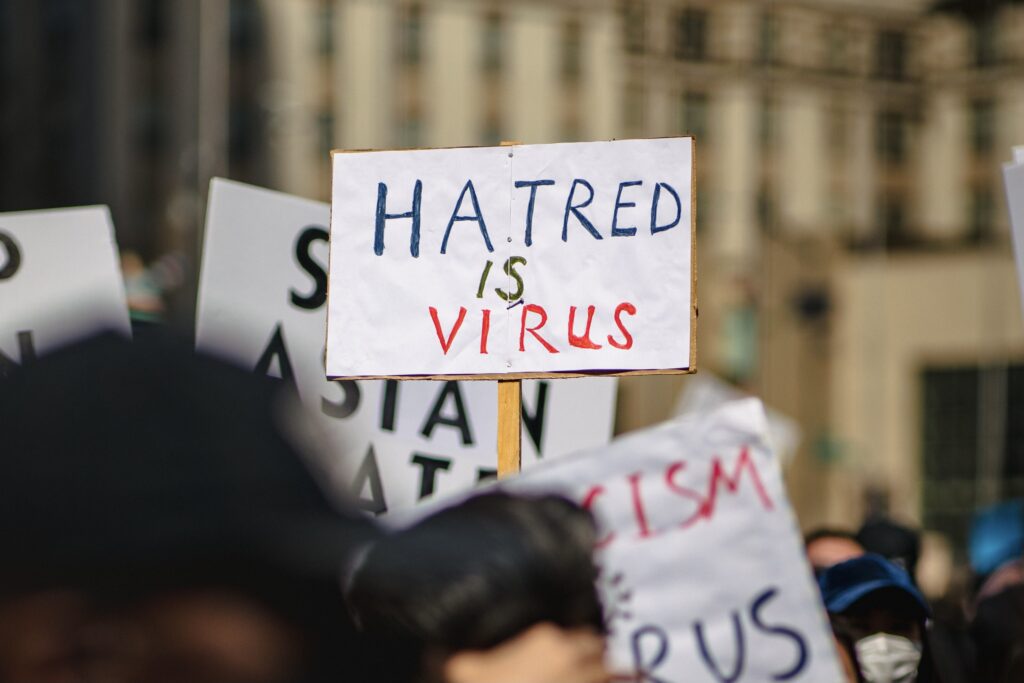“Do all the good you can. By all the means you can. In all the ways you can. In all the places you can. At all the times you can. To all the people you can. As long as ever you can.” —John Wesley
October is National Bullying Prevention Month. This campaign was founded in 2006 by PACER’s National Bullying Prevention Center. The campaign serves to unite communities nationwide to educate and raise awareness of bullying prevention. Initially held the first week in October, the event was expanded in 2010 to the entire month.
“PACER developed the initial campaign, National Bullying Prevention and Awareness Week, to raise awareness about bullying. Historically, bullying had been viewed as “a childhood rite of passage” that ‘made kids tougher,’ but the reality has always been that bullying can leave devastating and often long-term effects such as a loss of self-esteem, increased anxiety, and depression for those involved. The National Bullying Prevention Center laid the groundwork so that National Bullying Prevention Month is now a nationwide call to action around educating communities as to their roles in bullying prevention. This initiative has helped shift thinking away from bullying as “rite of passage” and toward the knowledge that bullying can be prevented and stopped through education and awareness.”[1]
Having a month to raise awareness about bullying is critical. Far too many children and youth have suffered from bullying over the years. However, the attitudes toward bullying are ever-so-slowly changing with the push toward awareness of what bullying looks like and the consequences for our children, youth, and adults.
Unfortunately, such awareness struggles to reach many within our country. We have witnessed clear signs of bullying at some of the highest offices in our democracy, in public arenas, in our churches, and in our homes.
So, just what is bullying?
“Bullying is an ongoing and deliberate misuse of power in relationships through repeated verbal, physical and/or social behavior that intends to cause physical, social and/or psychological harm. It can involve an individual or a group misusing their power, or perceived power, over one or more persons who feel unable to stop it from happening. Bullying is not: single episodes of social rejection or dislike; single episode acts of nastiness or spite; random acts of aggression or intimidation; mutual arguments, disagreements, or fights.”[2]
‘…ongoing and deliberate misuse of power in relationships…’ Do you hear my big sigh right now? We have choices to make each day about how we relate to one another, and I’m not talking about simply “don’t be a bully.”
I’ll speak to this on a personal level: How do I pay attention to what’s going on around me? Do I shrug it off, choose not to see, say it’s not my business, do nothing out of fear? As far as bullying in politics, big business, churches (yes, churches) and other public arenas, am I too overwhelmed? do I look the other way, make excuses, or simply say “that’s just the way it is?” I write this because these are some of the things with which I struggle. I don’t like conflict. Who am I to make a difference in “the way things are?”
Yet, I know my faith in the living Christ calls me to see with eyes wide open the possibilities and promises of God in the world. One person’s act of kindness and courage can give voice to effective change, one person at a time.
I can work to vote bullies out of office. I can refuse to support unfair practices and misuse of power. I can use my privilege as a white woman to speak up and stand up for someone being bullied, be it an individual or a group. I can trust that God will guide me as I open myself to seeing with Christ eyes and Spirit’s wisdom.
Blessings,
Donna
Rev. Dr. Donna Patterson serves as Anam Cara Chaplain in Residence for Scarritt Bennett Center and directs the Center’s Soul Work program.
[1] https://www.pacer.org/bullying/
[2] https://www.ncab.org.au/bullying-advice/bullying-for-parents/definition-of-bullying/
